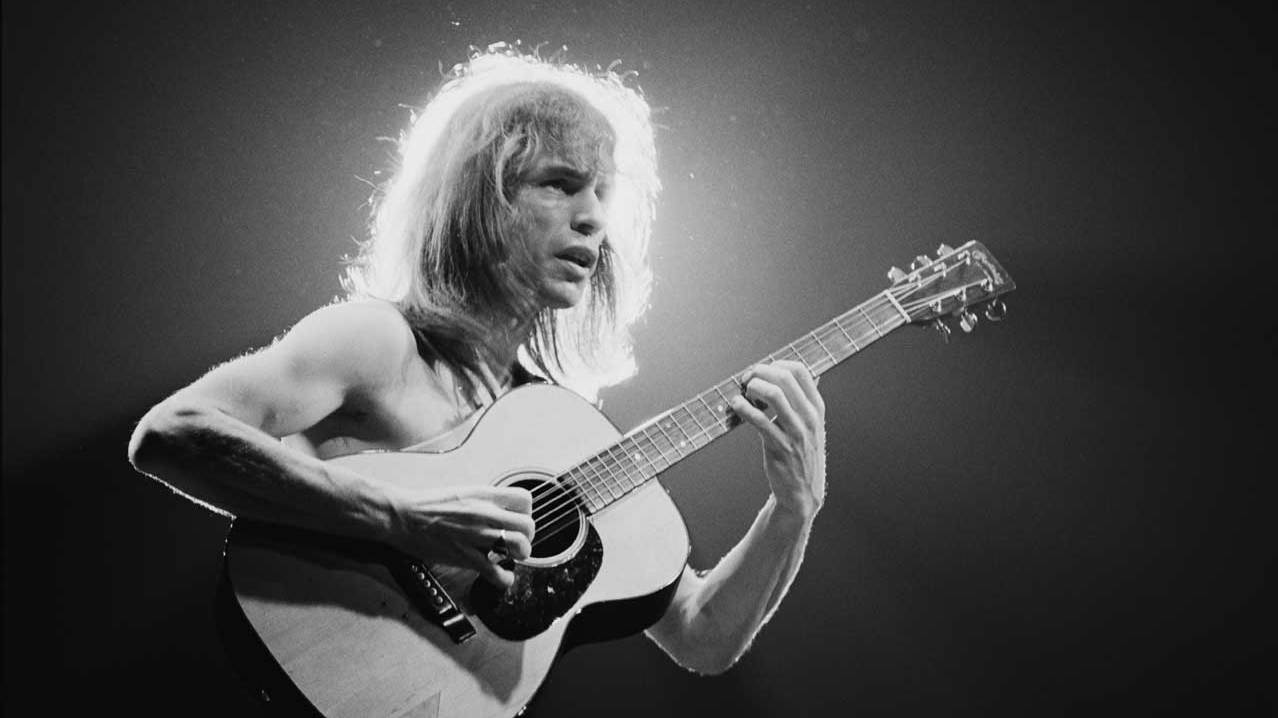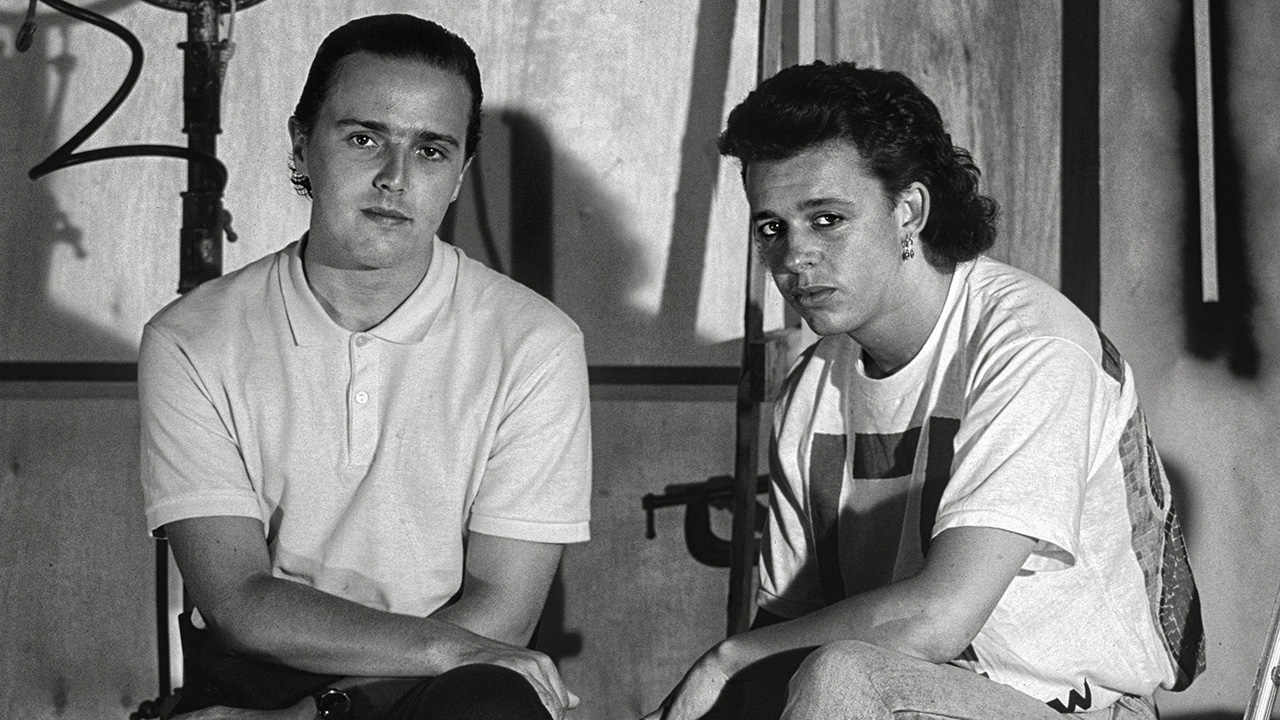Steve Howe: The 10 Records That Changed My Life
Yes guitarist Steve Howe picks 10 songs that made an impact during his 50-year career in rock, from Les Paul to The Libertines

Yes guitarist Steve Howe has an abiding passion for music.
“Obviously I love rock’n’roll. Because that’s what I essentially play. But I also love all types of music. As long as it’s real, then I enjoy it. From pop to classical, it all interests me.”
When it came to choosing 10 songs which altered the shape of his life, he admits to having a genuine challenge.
“The thing with these lists is that I tend to change my mind a lot. And mess around with what should be included. But these are 10 records which I believe have been constant in my life. So, I suppose it’s fair to say that they’ve had a profound impact – and still do. What I’ve done is list them chronologically, which reflects the way they came into my world.”

Les Paul & Mary Ford – The World Is Waiting For The Sunrise (1951)
“You know, I heard this when I was a child, before I even knew what a guitar was. My parents had it on a 78. Mary Ford’s vocals were fantastic, and you can also hear every cliché that Les Paul ever invented right here. But he did these before anybody else. It’s one of those recordings which make a big impression on me at a very early age.”
Wes Montgomery – Four On Six (1960)
“I could have chosen anything from his album The Incredible Jazz Guitar Of Wes Montgomery, but this track really does it for me. It encapsulates what he was able to do. I was actually lucky enough to see him live when I was 16 at Ronnie Scott’s. That was an experience.”
Chet Atkins – The Girlfriend Of The Whirling Dervish (1962)
“I could have chosen a lot of different songs from Chet Atkins. He’s my favourite all round guitarist. There are those in different areas of music who are better than him, but nobody had the same ability when it comes to being across the board. For me, it was an education to listen to what he did. I was lucky enough to meet him a few times, and have everything he recorded.”
Sign up below to get the latest from Classic Rock, plus exclusive special offers, direct to your inbox!
Bob Dylan – One Of us Must Know (Sooner Or Later) (1966)
“This is from the start of his electric period. Don’t get me wrong, I love his acoustic stuff as well. But for me this song captures what the 60s were all about. It was pre-hippie, but really encapsulates what this period came to mean. The lyrics, the sound, the vocals… it was all new and exciting.
On the subject of Dylan, I know people claim that when Dylan went electric, there were fans booing him at gigs. But I never thought that was because he’d changed style, but due to the fact that he was just standing onstage tuning up and not singing. That’s my theory anyway!”
The Byrds – Eight Miles High (1966)
“Look, I love what The Beatles did, but for Keith West and me when we were in Tomorrow, this was psychedelic heaven. Roger McGuinn was superb on guitar, and whenever I heard this, it just represents everything about this year meant to me.”
Abba – Winner Takes It All (1980)
“Whenever I mention that I love Abba, people are amazed. They are very unimpressed. ‘How can you like pop like this?’, they ask. But the fact is that I think Abba were a great pop band. You listen to Agnetha’s vocals and they’re wonderful, and so is the production.
"I could have gone for something from their final album The Visitors, because that’s so dark and proves there was more to this band that lightweight pop. But Winner Takes It All is a song I’m always happy to have in my head.”
Go West – Don’t Look Down (1985)
“Like Abba, people are shocked when I tell them that I love Go West. They cannot believe I appreciate pure pop. But I do. Like any other form of music, when it’s done well pop is amazing. Go West are a classy band.
"And in Alan Murphy they had a brilliant guy on guitar; we worked together on a few sessions. I could have picked any number of Go West songs. The King Is Dead, From Baltimore To Paris… but the remix of this song is so dramatic.”
Peter Gabriel – Sledgehammer (1986)
“This was one of those songs where Peter Gabriel threw out the so-called rule book, and decided to do whatever he wanted – again! You can hear Tony Levin’s marvellous playing in the background throughout this, and because it’s so unusual and off the wall this stays with you.”
Alison Krauss And Union Station – New Favorite (live) (2002)
“For me, this is the best band of the past 15 years. Alison Krauss is such a fine singer, violinist and producer. And she has a great ability to pick the right songs and then arrange them to suit her and the band. While the studio version of this song was fine, it’s in this live state that New Favorite comes into its own.”
The Libertines – Music When The Lights Go Out (2004)
“This was the band who rekindled my love for rock’n’roll when I heard them. They are crazy guys, but came up with some wonderfully melodic songs. When I hear this, it reminds me what first got me excited about rock’n’roll. And that means a lot to me now.”
Malcolm Dome had an illustrious and celebrated career which stretched back to working for Record Mirror magazine in the late 70s and Metal Fury in the early 80s before joining Kerrang! at its launch in 1981. His first book, Encyclopedia Metallica, published in 1981, may have been the inspiration for the name of a certain band formed that same year. Dome is also credited with inventing the term "thrash metal" while writing about the Anthrax song Metal Thrashing Mad in 1984. With the launch of Classic Rock magazine in 1998 he became involved with that title, sister magazine Metal Hammer, and was a contributor to Prog magazine since its inception in 2009. He died in 2021.

